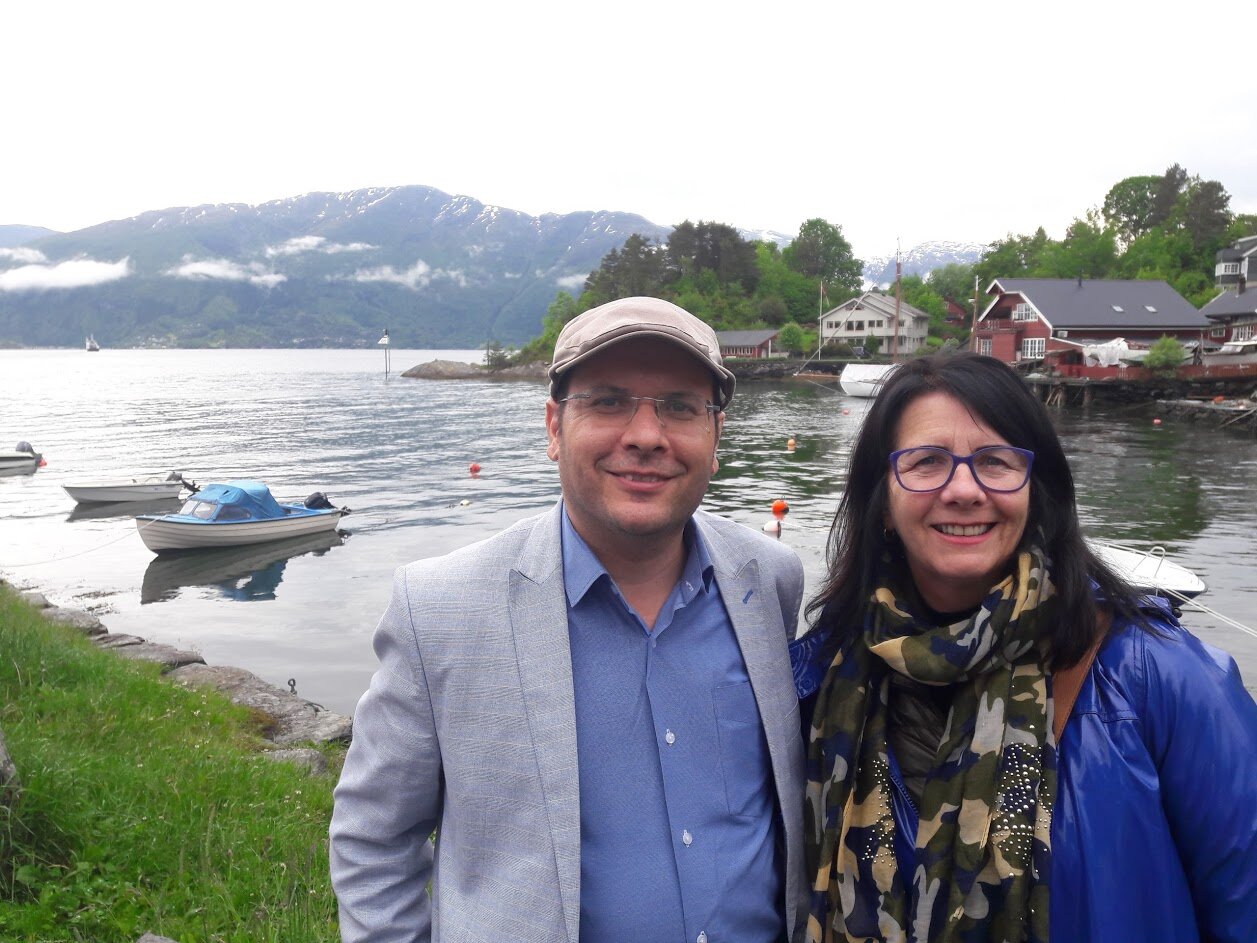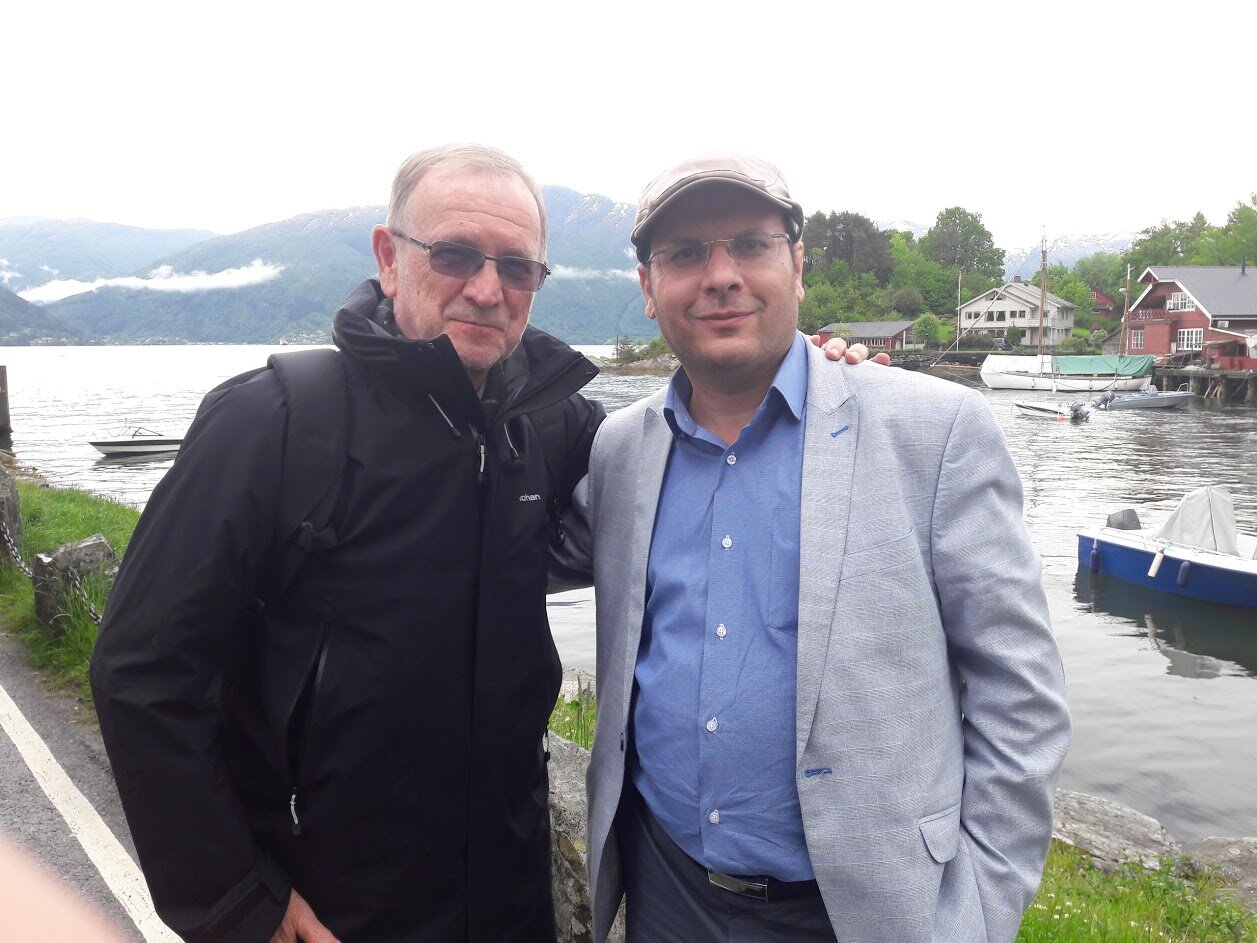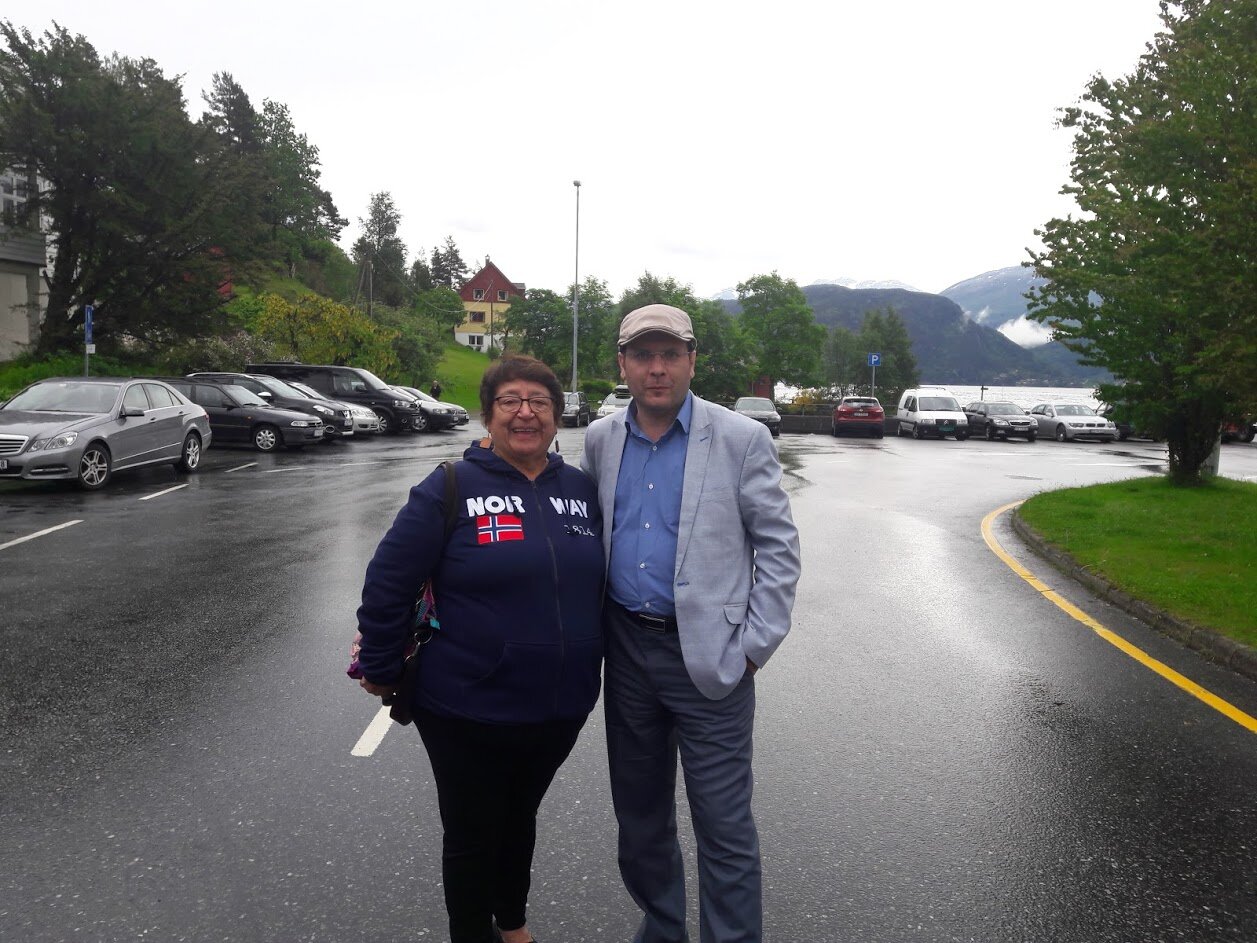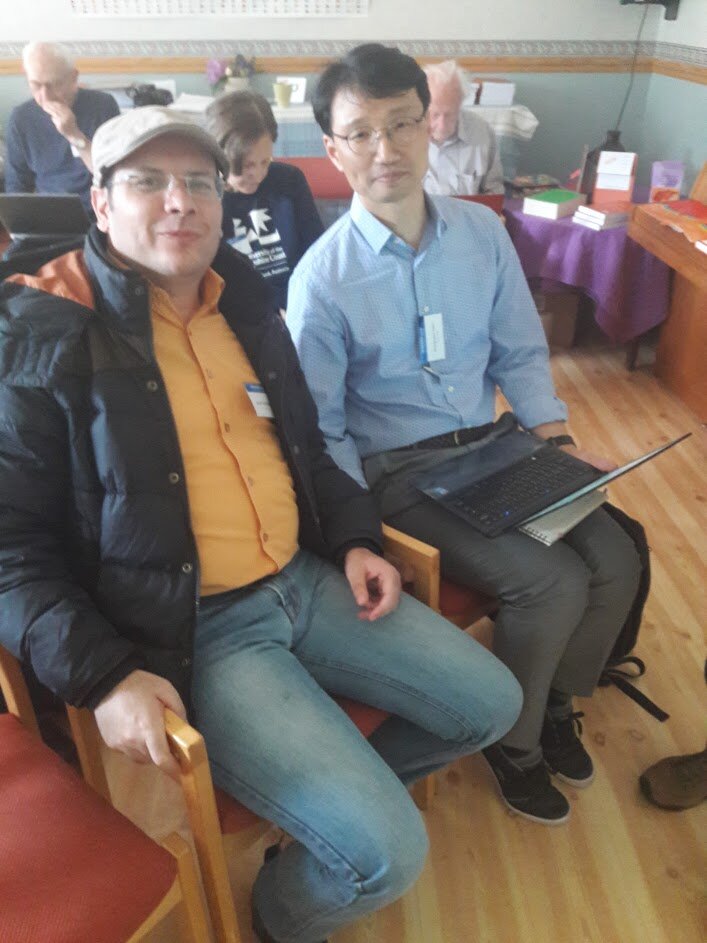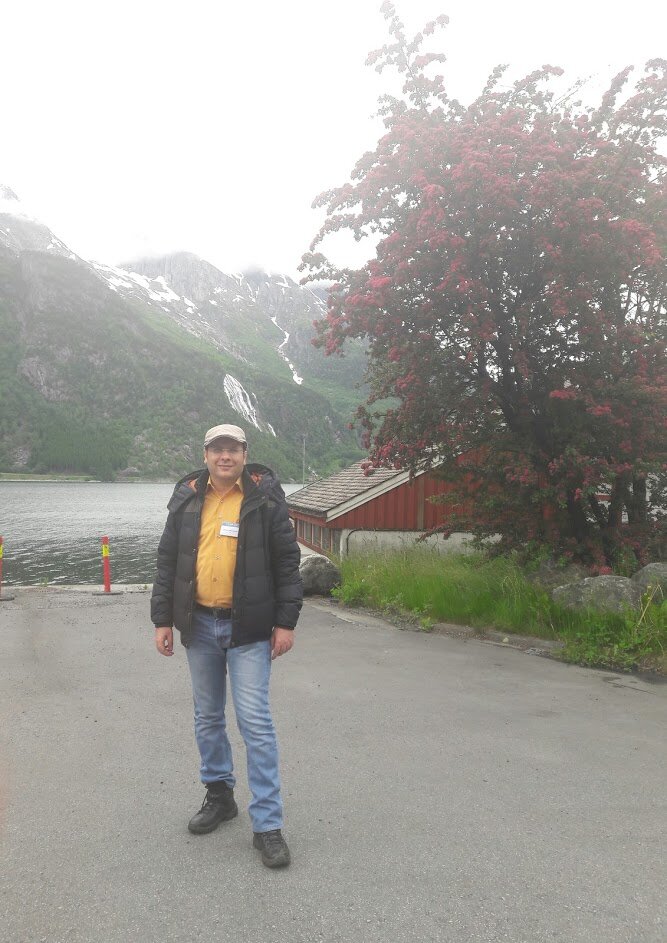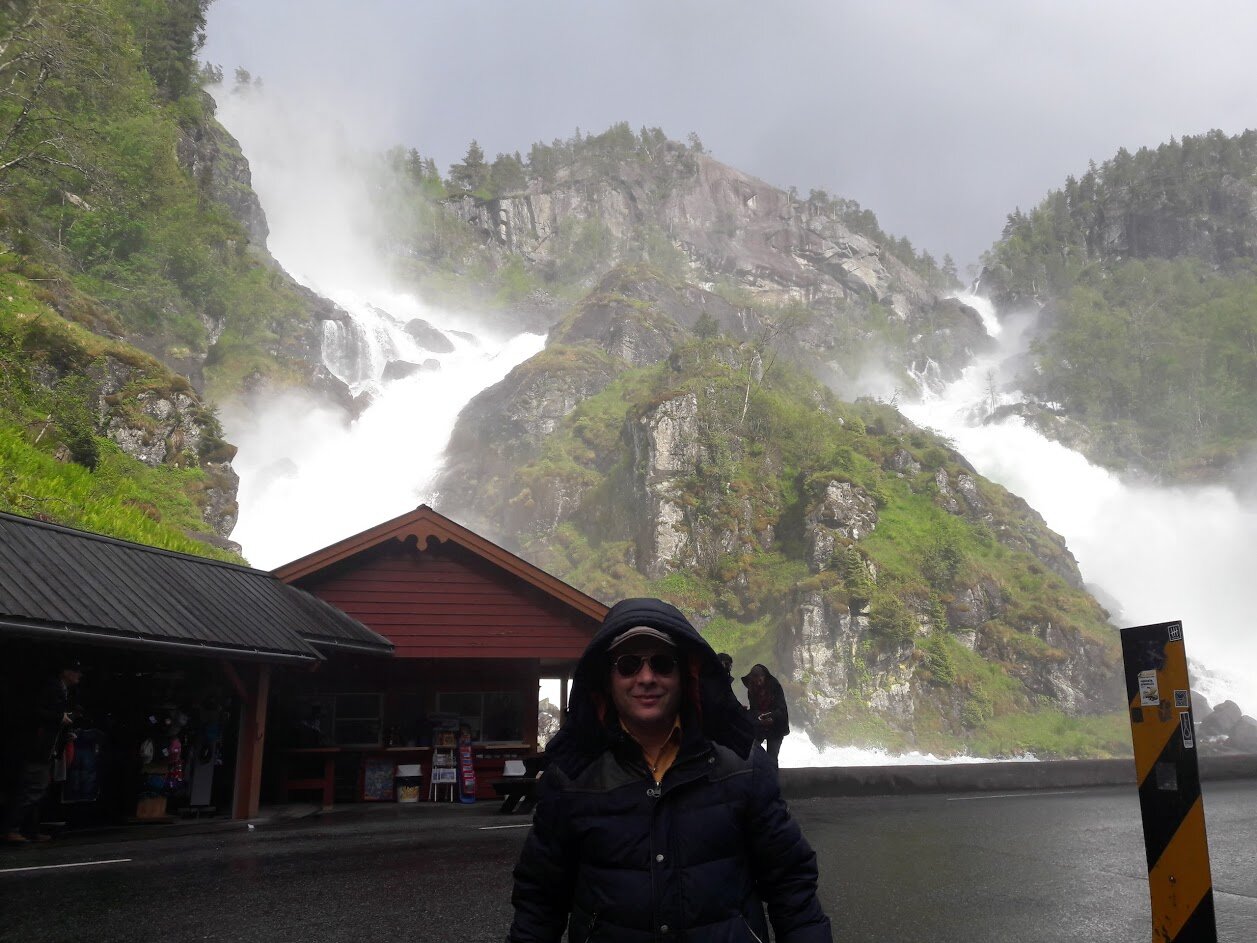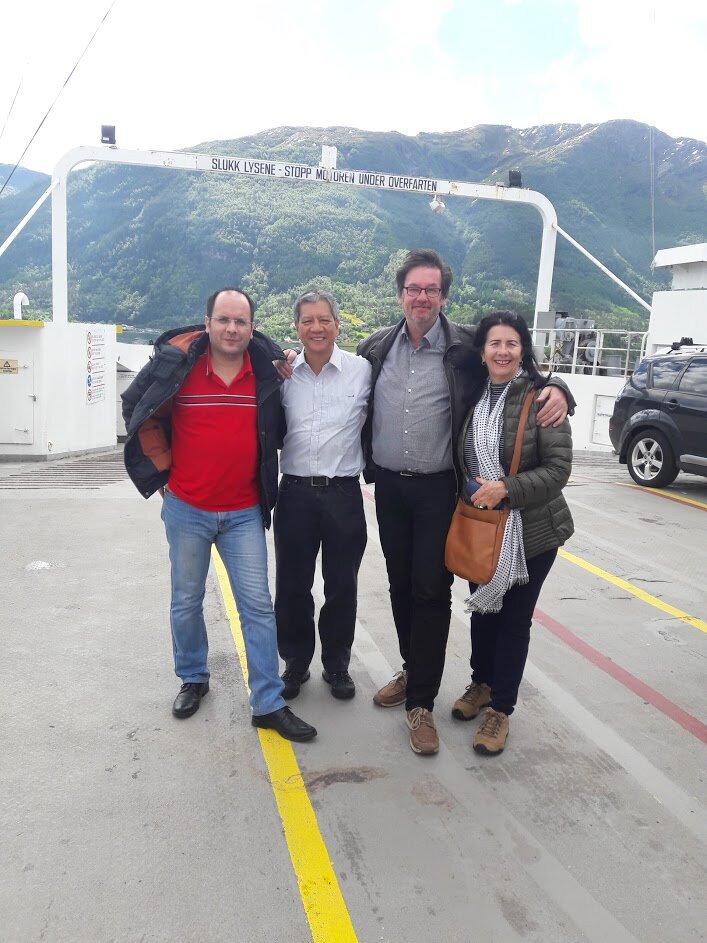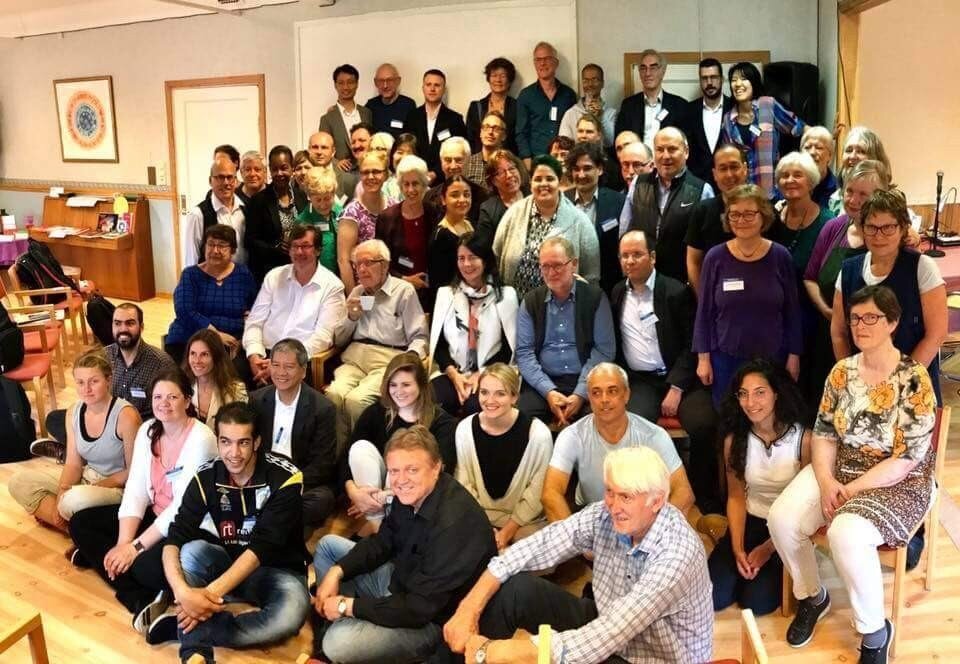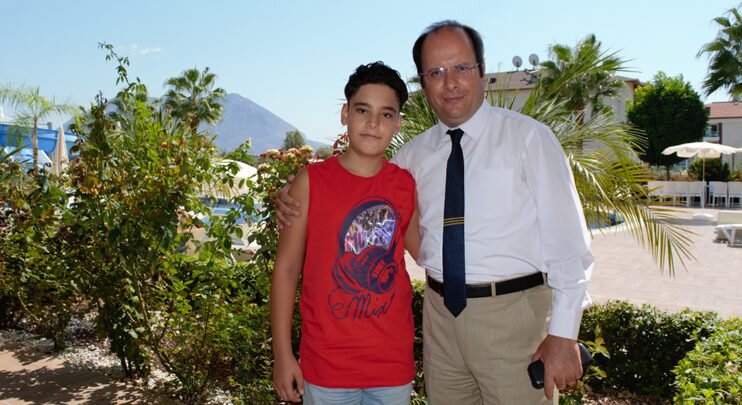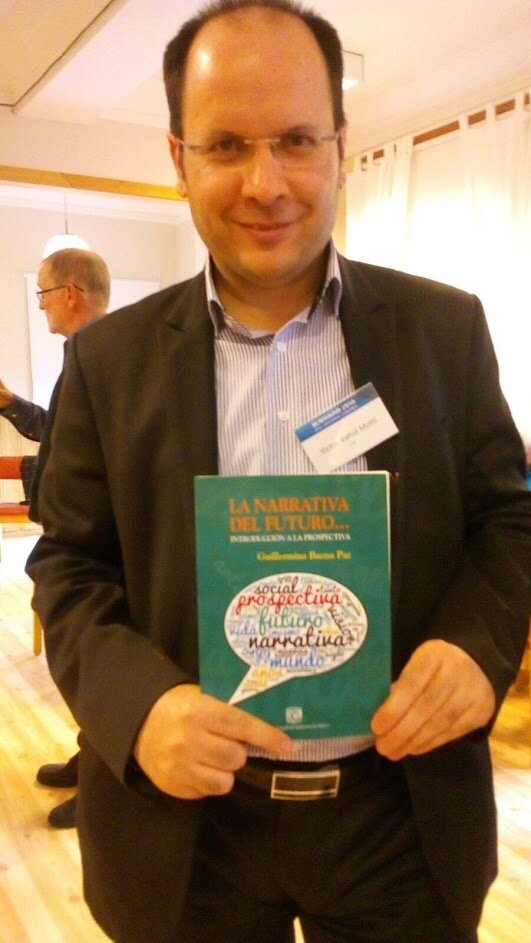Victor Vahidi Motti is the Director of the World Futures Studies Federation (WFSF) which is our foremost body for independent future studies scholarship. Victor explains how he applies an Integral Futures Framework, which is based on the science of complex systems and names after Zurvan, the entire god of infinite time and space in ancient Persian mythology. For him, Futures is the search for the Husraw Wisdom and finding trans-formative narratives.
Interviewed by: Peter Hayward
More about Victor
Contact
References
A Transformation Journey to Creative and Alternative Planetary Futures
The Future of Business: Critical insights into a rapidly changing world from 60 future thinkers
Question 1:
Slaughter, Richard A (Ed) (1996), New Thinking for a New Millennium, London, New York, Routledge.
WFSF World Conference & General Assembly, Transitions: Encouraging Emerging Worlds, Trollhättan, Sweden, June 30-July 3, 2008
Question 2:
Let’s Connect the Dots Series on Victor Vahidi Motti's YouTube Channel; Application of System Thinking for Bitcoin and Cryptocurrencies, Green Economy and Clean Energy, The Fourth Industrial Revolution, The China-US Trade War, Future Impacts
Directions in scenario planning literature – A review of the past decades
Application of Prospective Structural Analysis for Identification of Strategic Variables in the Future Development of Baneh City in Iran, June 2015, European Spatial Research and Policy 22(1) DOI: 10.1515/esrp-2015-0022
Epistemological pluralism in futures studies: The CLA–Integral debates
Distant Futures of Everything Series on Victor Vahidi Motti's YouTube Channel; Science Fiction - The Evolutionary Mythology of the Future
Zurvan (Persian god of infinite time and space)
Zurvanism (Persian mythology/theology)
Founder of the Zurvan integral framework is Sherwin Vakili (in Persian)
Zurvan is a holistic/integral framework for Strategic Foresight through Transformation Narratives, based on the science of complex systems and called after Zurvan, transcendental, neutral and entire deity of infinite time and space. This framework consists of seven steps to find a range of transformation narratives.
Example of Zurvan application: Re-Globalization vs. De-Globalization, Abdullah II bin Al-Hussein, king of Jordan opinion piece in the Washington Post, Content Analysis using the Zurvan integral futures studies framework and Husraw wisdom .
What is Husraw Wisdom and its associated Worldview, Linking Ontology to Epistemology in Zurvan framework
Question 3:
Key Driving Forces for the 2030-2040 horizon to watch, Anticipation Monthly (May 2020): A Review of Alternative Planetary Futures
Question 4:
22nd WFSF World Conference: June 7-10, 2017, HUMANKIND 2050: Peace Development Environment, Jondal, Norway
Anticipation and Futures Literacy in the 21st century, Dialogue with Riel Miller, Head of Futures Literacy, UNESCO, Paris
Association of Professional Futurists (APF)
Audio Transcript
Peter Hayward
Hello and welcome to futurepod I'm Peter Hayward. Futurepod gathers voices from the International field of futures and foresight. Through a series of interviews, the founders of the field and emerging leaders share their stories, tools and experiences. Please visit futurepod.org for further information about this podcast series. Today, our guest is Victor V. Motti. Victor is the current director of the World Futures Studies Federation, which is our foremost independent body for future studies scholarship. Victor is also an international writer, speaker, and foresight consultant. His extensive writing includes the book A Transformation Journey to Creative and Alternative Planetary Futures. And he also co authored the Future of Business critical insights into a rapidly changing world. Victor is based in Turkey, and he reads English, Arabic, Persian and Italian. Welcome to future pod Victor.
Victor Motti
Thank you very much for having me, Peter. I'm very much honored to join this podcast series initiated by you and I have been following many of your podcasts already. And I also recommend our members in the Federation I mean, World Futures Studies Federation and other kinds of associations who are concerned about future studies to enjoy the collection of podcasts you have already prepared.
Peter Hayward
Thanks very much speak to this very subject. The question one is the question where the guest tells their story of how they became a member of the futures and foresight community. So what's the Victor V. Motti's story?
Victor Motti
Well, it's a rather strange story, because it goes back to almost 20 years ago, I am now almost 40 years and it was when I was an undergraduate student studying for a degree in engineering. Before becoming accepted to the university I was in high school, interested in the subject of the future, particularly after reading the book by Alvin Toffler Future Shock. When I was admitted to the university to study engineering, I was much more interested in science, technology, mathematics, physics, and disciplines like that. But very soon I was drifted into an interdisciplinary field. I mean, when I found the book edited by Professor Richard Slaughter, a very well known Australian futurist, and the title of that book was very much fascinating for me, because it was about New Thinking for the New Millennium. And after reading that book, I found that in addition to very limited focus on science, technology, or engineering, or physics or mathematics, I can also enjoy big picture thinking in terms of absorbing ideas put forward by people like Richard, Slaughter and his colleagues who have written that book together. Very soon, I decided to contact Richard himself, because, you know, it was the beginnings of their Internet age and our tools were much less developed compared to today. But back then I was able to find his email address and contacted him and asked him for any kind of guidance or recommendation he might have for me. Richard Slaughter was a former president of the World Futures Studies Federation. Yeah, he was a very well known futurist throughout the world. And he quickly encouraged me to apply to become a member of the Federation. And he added that you simply don't need anything but just joining this community of professional futurists and look in the internet whatever you would like to follow up in your studies. Fortunately, I also had the support of Dr. Wendell Bell in the United States, Who was also a very well known futurist, the late Wendell bill. He passed away a few months ago. Unfortunately, he was also very supportive with that support that these two giants of the field I was introduced to the Federation. It was in 2007. So after a year, when I was exchanging many emails on the WFSF listserv, I noticed that there is going to be a conference I mean, a World Conference of the Federation in Sweden in 2008. I was quite excited to participate in that conference and made my plans for attending this conference and eventually was able to get there despite the fact that travel I mean, international travel was a lot difficult for me back then, because of my Iranian passport and, and nationality, which was a barrier for easy travel to the Europe and eventually with the support of the President of the Federation, Fabienne GOUX-BAUDIMENT and Natali DIAN, who was a member of the board, back then, and Fabienne was the President in that period, I was able to participate in that interesting conference. And it was my first face to face or flesh and blood experience of dealing with people who were my, who were my conversation partners only through the digital platform, I mean, the exchange of emails. It was a quite wonderful and fascinating experience for me. I continued to be active on the WFSF listserv and in other occasions, and I was invited to several conferences in Asia, Africa and Europe. In 2012, I was appointed by another leading Australian futurist, Dr. Jennifer Gidley, who was the President of the Federation to become a member of the board. And in 2013, I was elected to become a member of the board for a four year term. And in 2017, I was appointed to become Director of the Federation. It was quite a very fast and rapid movement in the Federation for me, because I was not expecting to become so much involved in the futures studies community and well practically, I had hardly done any much projects inside my own training discipline, which is civil engineering, but I had been drifted into writing books and giving talks about Alternative Planetary Futures. And I have been quite involved in futures studies. To the extent that today, I am doing the futures studies almost full time and I cannot imagine doing anything else.
Peter Hayward
Question to Victor, one, where I encourage the guests to take a favored method or tool or framework that is central to their practice, and explain the use of it to the listeners. So what do you want to talk about?
Victor Motti
Well, you know, going back to Richard Slaughter, and he is well known for for promoting integral futures studies frameworks. And by that integral, he often means the Ken Wilber's approach. I have been, since the beginning much interested to do integral futures studies. And in my professional advising, of course, I often use system thinking by application of for example, system dynamics, feedback causal loops. The use, of course used very widely, scenario planning different methods to do scenario planning, the use of different tools like future wheel everything that is available to give us a systemic understanding of what are the key factors that are going to shape the futures of a particular issue, but in the long term, I would like to spend my time on integral futures studies. And if you are already aware about the debate between Richard Slaughter and Sohail Inayatullah, both of them are prescribing integral or integrated future thinking. For Slaughter, it's mostly about Ken Wilber's approach and for Sohail Inayatullah, Causal Layered Analysis, but very recently, I figured out that there are at least two other potentially useful integral frameworks. One of them is science fiction, . built up by an expert, another good friend of mine, and very well futurist, Thomas Lombardo, based in Arizona, United States. And by by that he believes that science fiction is the evolutionary mythology of the future. And I believe that science fiction is also a good framework to help people integrate not only the objective analysis of data, but also the human feelings, human subjective understanding of what's happening in all the dimensions of the life, to be incorporated into a good science fiction, literature or novel, not only, of course, the science fiction movies, because most of them, unfortunately, are just about special effects or technological, technological advancements. But according to Tom, and I believe that he is correct, if you follow, you will read more science fiction novels as opposed to watching science fiction movies, you'll note that there are lots of rich imagination in those collection of works, which help us incorporate or integrate everything, which is related to human experience and the world in which they live. And there are other frameworks that I have also tried to apply it more often and I'm right now working on that. And I've been, I have been introducing that framework in my book, which you kindly introduced it at the beginning of this podcast; Alternative Planetary Futures. That framework is called the Zurvan integral futures studies framework. That framework is called after a Persian mythology and theology framework and Zurvan is of course, the name of an ancient deity of the infinite time and infinite space. And in that framework, I am trying to develop further the process which can be defined based on first finding or listing a set of opposite twins or binary opposites. For example, if you go back to the Zurvan mythology, you see that the Zurvan was there, a neutral or transcendental deity which created two opposite forces in the sense that one of them is called a Ahura Mazda and another one is Ahriman, Angry Mind or sometimes we call it Lord of the Wisdom versus the Ignorant Mind. And when you will find these kinds of binary opposites, you can be prepared, you can become prepared to go deeper and deeper. For example, in a very recent application of Zurvan framework I was, I was doing a content analysis of the King of Jordan's recent opinion piece in The Washington Post, which is titled, it's time to return to globalization, but this time let's do it right. And for example, in that in that context, you can you can see, or enlist binary opposite twins, like re-globalization versus de-globalization or sharing information versus retaining, retaining information, order versus disorder, good governance with this bad governmenance, or international cooperation or international focus versus national focus, and hope versus fear, etc. This is the first step in that Zurvan framework and the other steps are about finding or naming heroes or heroines and anti-heroes and anti-heroines by referring to the mythology in a specific context or by referring to historical events in that specific context in the world. In many different contexts you can apply this framework and you need to find who are the heroes or heroines in that context that is in a sense, summarize or capture the dynamic tension between those opposite twins. And in the next step, you go to subsystems that are defined around the individual and those subsystems are called social, psychological, biological and cultural. Here we are focused on the individual agency or the individual level to find what are their key objectives for such subsystem, for example, in the subsystem of the social field, you need to maximize the power of institutions or the subsystem of psychology, psychological, you need to maximize the pleasure of personality and in the subsystem of the biological aspect, you need to maximize the survival of bodies. And finally, in this subsystem of cultural, you need to maximize the meaning or providing or creating new meanings for the distinctive ideas that are going to shape the behavior of the subsystem of the individual at the cultural level. There were other steps in that framework. For example, after finding the opposite twins, and after finding the heroes and anti heroes, you go to subsystem and after that you try to list or find or figure out what are the illusory beliefs. For example, in this recent example of King of Jordan, his speech or opinion piece, you see that he is mentioning a list of illusory beliefs with respect to the current covid 19 pandemic. One of them is that a good response is to plug holes, or we will simply rebuild after this pandemic, or threats will not be hitting us all and all at once, or a single country acting alone can succeed or common concern necessarily translate into coordinate action. And when you find those lists of illusory beliefs, you're finally prepared to provide or recommend a set of strategies or wise strategies, because, as I told you today, wisdom is the key ultimate goal of the doing futures studies and also wisdom or the lord of wisdom is a central player in the Zurvan mythology in the Zurvan integral futures work and by finding those wise strategies, we can of course, find possible ways forward. For example, in the King of Jordan example, I found that he is talking about the wisest strategy which could be said like tell the whole story about the global opportunity gap that has been in our focus after this current pandemic and we are sensing what could be the scale of such a global opportunity gap and inequalities and in access to health cover access to essential and access to food and everything in this part, prepares us for finally arriving at the final step, which is called transformation narratives. And the transformation narratives is about to prepare a message for the audience or the people involved in the Zurvan integral futures framework to find what are those inspiring narratives or the elements that shape the narratives that will prepare us to go from the current status of the system to an even more complex and a more transformational step. And in the example of the King of Jordan, for example, I was able to find some sort of narratives, and one of them was that he says that, let's come together and get to work, which is the exact opposite of what the doctors are ordering us to do. I mean, by staying at home or have social distancing, but staying at home and social distancing is about just preparing ourselves for not getting sick. But the the narrative is not about the whole transformation, which is necessary after this pandemic. And that is exactly the opposite. I mean, coming together and get to work, or let's break down the barriers. If there are barriers that are in front of us and they're consolidating, we need to break down those barriers. There are of course, some similarities in some differences between Zurvan integral futures studies framework and other very well known frameworks like Causal Layered Analysis or Ken Wilber or Richard Slaughter's favorite framework. For example, in a Causal Layered Analysis, you also have the steps related to metaphors or related to a myth and metaphor. And of course, in Zurvan framework, you also have the step to find heroes and anti-heroes by referring to the mythology. Or you have systematic insight about both individual and the collective levels, I mean, the four quadrants in the Ken Wilber's approach or integral theory and of course, Richard Slaughter. In the Zurvan framework, we also have the step which is called the subsystems in terms of the social and biological, psychological and cultural by focusing on individuals and what could be the objectives for individuals to achieve to achieve a better or much higher level of in terms of social for example, power in terms of personality, pleasure, and in terms of biology, survival in terms of cultural, more meaning for an individual. There are other sorts of similarities but unlike Causal Layered Analysis, which gives you arbitrariness to pick a worldview, in the Zurvan framework, you have already used the worldview which goes back to the related wisdom school in the ancient Persia, which is called Husraw wisdom. Hasraw wisdom is an ancient school of wisdom in ancient Persia, which accepts a particular worldview and that worldview is providing the ontological base for the epistemological approach of the Zurvan framework and all of this help us to obtain not only a systematic understanding of what is going to happen, but also the better approach to the individual holistic and individual holistic understanding of what could be possible and what could be required to do a lot of radical change and, and by the way, Zurvan is itself a symbol sign of holistic thinking, because as a deity in the ancient mythology, to present the the whole the unique whole, which later differentiates into opposite twins and everything else, and that gives us all the elements required for a good integral futures studies framework, I mean, wisdom, holistic thinking, systematic appreciation of the factors of change, and everything is included in such an approach. And I believe that the more we apply it, I mean, not only the Zurvan approach to future studies, but also science fiction literature, or Causal Layered Analysis, or Ken Wilber's integral theory. All of these are essential for us to do better and high quality future studies. And through that, we can of course, find enough resonance with people who are either listening to us or are working with us towards making better visions for the world. I mean, after all, we are looking for preferred future that could be shaped by us today or for our community, for our county or even for the planet.
Peter Hayward
Thanks, Victor. They'll be on your page for listeners, there will be references to to some sites and sources that people can use to follow up on some of those things, too. Oh, thank you. Question three, Victor, the one I encourage Victor to put down the expert perspective of futurist and talk about how he sees the emerging futures and how he makes sense of what's around him and what he believes is emerging.
Victor Motti
Well the emerging future around myself is first of all related to my feelings before anything else, you know, at the moment like many of you, we are experiencing a crisis, I mean, a huge crisis due to bad anticipation to the bad governance we are suffering from in every country on the planet. I mean, you have been following the news. And you have seen that, despite the fact that many people have been talking about the beautiful age, that will come after science and technology progress and many talks by people, for example, by Harari, in his book, Homo Deus, you have seen that the human that were supposed to be the Deus or the god is at the mercy of a tiny invisible virus and it's a quite humiliating experience for humanity after seeing that humans not only are not gods but also slaves to just a tiny, invisible and miniature virus. And this is a big wake up call, I believe for many of us, not only futurists but also the ordinary people who are considering what's going to happen next. And of course, you know, before that, pandemic started, there was some forces already at play in in the system of the world and if you have followed what Jerome Glenn from Millennium Project, have been doing for a couple of years, by providing the list of key events, at the end of each year, you will see that there is also a good trend of many important events throughout the world. And there are some forces already at play in the world and such a pandemics such a crisis, we are going through it intensifying in a sense or providing a catalyst for acceleration of those changes. And among those changes, I would say that we have to be watchful about convergent technologies, I mean, nano bio information and brain research, explainable artificial intelligence and or AI regulation, and, of course, quantum computing in the technological aspects of the change of the future. And in addition to that, we have issues like commercialization of space, or use of highly controversial geo engineering measures to combat climate change. And this is going to happen regardless of whether we approve it or not. Right now you know that in addition to Pandemic, we have been facing another big challenge, and that is the Pandamic, you know, panda is referring to China, the rise of China, and the pandamic is also going to be a huge factor that is going to shape both our lives at the individual and the regional and planetary level. And today, I saw that even China has started to introduce a huge state-sponsored digital currency to challenge the dominance of the US dollar, you know, the tensions are already in the system, and the pandemic is just triggering to trigger a chain of reactions that will, will bring to us total uncertainty about what is going to happen next. And of course, there are some other driving forces like Scramble 2.0 for Africa, I mean, the new colonization of Africa or the Scramble 1.0 for North Pole, you know, after the climate change and global warming, there are going to be a huge competition between neighboring countries in that region. I mean, Russia, United States and North European countries to just rush into that North Pole area. And in Russia, I have I have seen that even there are some offers by the Russian government for any body who likes to settle in the now more habitable zones in Siberian region, which after this climate change and global warming, you see that permafrost layers have been melted down. And Russian government is offering people to just go and settle there
Peter Hayward
is a new frontier, isn't it?
Victor Motti
Yeah, there are new frontiers. And in addition to all of these there's a very terrifying prospect of the rise of authoritarianism, either in a religious way or in a secular way. The Corona pandemic has provided enough justification for more authoritarianism. And you know, when you talk as a futurist to some people who would prefer to study the history, many of those historians have already raised alarms about the repeat of the early years of the 20th century. I mean, when the globalization was in retreat, and there was a rise of nationalism, there was economic depression, and most of the historians are, well, of course, they studied history to tell us that the history is going to repeat itself. Okay. But, you know, as futurists, we need to be cautious, we need to talk to people around us to convince them that humanity is not destined to just repeat itself to aimlessly repeat itself in very ridiculous cycles of endless repetitions. And of course, cyclic conception of time, was challenged by the ancient Persian mythology- theology I means Zoroaster was the early philosopher who told us that we need to stop thinking in terms of aimless cyclic repetitions or patterns of events, and we need to have a progressive mindset about the continuous upward trend in the, in our time on the planet and, and that kind of worldview is also inside the Husraw Wisdom, and the Zurvan integral futures framework and I and I believe that that will give us much more responsibility much much more necessity to have more imagination about what is going to be an emergent world not just try to anchor our thoughts and feelings into the past into the history and the into cyclic and endless repetitions. Again, if I'm going back to a big narrative that could shape our understanding about what is going to happen around us. I was applying this Zurvan framework for the current situation and found that a very well known mythological figure from the ancient Persian mythology is called Yima, Yima was very well known King. He was a very heroic figure character in that he was able to build an underground network of supplies and cities during the rule of the demon which is called the Malkus. Malkus was the sort of demon which was about a little ice age or unusual winter all over the planet. And in that framework, you see that you have this narrative of the trial by ordeal. Trial by ordeal is a very well known thing in Europe history, ancient Europe history and of course, in Persian mythology, it's about testing the people, I mean, the innocent people, by the forces of nature, and the force of nature right now is this virus, and this virus will decide who are the innocent leaders, who should be able to survive after this, a test or trial, and prepare us for a new world that is going to emerge after this crisis is over. And this somehow summarizes my, my feelings and my thinking about it. And of course, we cannot resist both the positive and the negative feelings, you know, I am totally and absolutely enjoying the very quiet and very silence around me because of lockdowns, you know, I can even hear my own breathing today, when I'm sitting in my balcony, nobody in the streets, no cars, no traffic, no anything, no pollution. And on the other side, we are of course, fearful and anxious about what is going to happen. For example, for for me and my wife, who are living in a strange land among strange people, I mean, we do not speak the language and we are not supported by our family, everything that is going to happen to either of us could be a catastrophe. You know, we feel quite vulnerable today and at the same time are enjoying our new normal and this is going to be what is happening to everybody and I'm sure that we are among the most privileged class of people in the world. We are already have access to each other and are talking to each other recording this podcast. But you know, many, many people are absolutely suffering I mean they have lost their jobs and they cannot afford food. For example, if you see the recent numbers in the United States, it's a huge number of unemployment unprecedented. 30 million people and 30 million people. Yeah, that is a very gloomy outlook of what is going to happen in.
Peter Hayward
That's the entire population of Australia is unemployed.
Victor Motti
Yeah, that it's, it's very, very unprecedented and nobody is sure. And, and you know, those historians, when I'm talking to them, or you or I following them, they say, Well, there are 30 million people. And there is there is this tension from the Pandamic, I mean, the rise of China. And the obvious result could be that part of this 30 million people will join the US military and they will be employed by the US military to occupy or invade a country. I don't know.
Peter Hayward
I hope not. Question for Victor. How do you explain to someone who doesn't know what you do? How do you explain what it is? You do?
Victor Motti
Very interesting question, because I have some funny memories. You know, when I was invited to do a recent conference of the Federation in Norway, I mean, in Jondal, I was required to obtain a visa, okay. And when I visited the Norwegian embassy, the lady, the officer in charge of the application asked me, who are you? And what are you doing? I told him that I'm in the Federation of futures studies. And she was perplexed and she didn't understand what I'm talking about. And she, she interestingly, asked me what kind of sport that is at the Federation. I quickly found that she didn't make the connection between the Federation and the future. And I had a very good recommendation from Jennifer who gave me to deal with that situations. She told me that you need to go for example, we are working with UNESCO, for example, because UNESCO is much more known key term for many people, and by UNESCO, I mean United Nations Educational, Scientific and Cultural Organization. We are, we are in a sense, trying to help UNESCO and other kinds of United Nations bodies to promote the literacy of a special literacy, which is about better imagining different futures and that is the futures literacy, that competency about having the imagination necessary to challenge our current present in terms of finding the novelty, that Riel Miller is talking about in other times, in other situations also have very funny experiences. You know, many people would mistake me with fortune tellers, for example, or sorcerers. When a mother who participated in one of my workshops, she approached me and asked me what is going to happen to my daughter's future in terms of a happy marriage or not? I told her that I don't have any idea. You know, we have this challenge and not only with ordinary people, but also for officers in charge in embassies in other places, but I believe that after almost 50 years of lots of good futures studies, works by giants of the fields, I mean, like Jim Dator, Richard Slaughter, and Sohail Inayatullah and Wendel Bell and people like you of course, Peter Hayward in Australia, many people are beginning to understand that we are not fortune tellers, we are not going to determine whether someone is going to have a happy marriage or not. Or we are not, we are not predictors or everything else. We we are just trying to promote futures literacy in the sense that enable people to become much more creative in dealing with their present in terms of a whole range of alternatives that could be offered to them for decision making and we can link that easily to their quality of life later. I mean, the quality of life is related to the better decisions you are going to make. When many people are obliged, or have to have chosen field or discipline for work, I mean, we cannot expect that all of engineers become futurists very soon, because after all, we need some specialists working on building roads or building houses and etc. But we need to find our place in society where we can put together or connect the dots for people to see the whole picture, the big picture and consider the very long term, what is going to happen if the current dynamics in the system is not challenged are going forward and what are the narratives that are going to emerge later and, and after all of these, we are going to be change enablers. Whenever you need a good, good group of people who are able to provide a basis for change, for better, you can call a group of futurists, professional futurists like the members of the World Futures Studies Federation or APF, Association of Professional Futurists, to invite them and help you prepare yourself for a transformation into a better or a new, a new sets of rules for the change. I mean, if you may remember, well, Riel Miller is also talking about the conditions of change, we need to find out to change the conditions of change. And and for that we can contribute a lot.
Peter Hayward
Thanks. Thanks. Victor, we've got to the last question, the open question. So what do you want to talk to the listeners about for your last question?
Victor Motti
Well, thank you, again, for giving me this opportunity to participate in your podcast series. And I've been enjoying all of them. Of course, you are doing a fantastic job with your colleagues in Australia. And I really admire what you're doing and I would like to invite people to pay a visit to the website of the World Futures Studies Federation (WFSF), which which is actually an umbrella organization, it tries to have all the active futurists or researchers or people involved in anticipatory process design to join this Federation as an umbrella organization. And you can have a good company in that Federation, I mean, talking to colleagues from all over the planet. And you know, in my, in my in my book Alternative Planetary Futures, I have been talking about the binary opposite of the globalization, you know, after the pandemic, we are seeing that globalization is in retreat or even dead. But planetization is not, you know, Planetization is exactly the thing that we are doing in World Futures Studies Federation, we are coming together, even though we do not travel to each country, each other's countries, but we are collaborating, we are exchanging ideas. We are even very recently, we use the virtual platforms like Zoom for gatherings. And there was seven sessions of wonderful gatherings by the Federation members. I mean, from all age groups, from all levels of carriers from all countries throughout the world, we had a very fantastic conversations about what is happening, what is going to happen. I would like to invite all of people to become a member of the Federation who are feeling that such a company will help them both widen their social network and find a good spot for making a good impact in their world. I mean, in their immediate surrounding or for the planet wide issues.
Peter Hayward
There are certainly second that I've been a member for an awfully long time. It's a terrific Association and a great bunch of people.
Victor Motti
Thank you very much.
Peter Hayward
Well, Victor, it's been terrific to spend some time and hear about your incredibly fast journey. But I'm particularly delighted to hear how you are integrating other cultural historical frameworks and bringing them forward to help us all better help people understand where they are and where they'd like to go. So on behalf of the future pod community, thanks very much for participating.
Victor Motti
It's It's been my pleasure. Thank you very much again for everything you have done and I wish you all the best in your continuation of this wonderful series of podcasts.
Peter Hayward
This has been another production from future pod. Future pod is a not for profit venture. We exist through the generosity of our supporters. If you would like to support future pod, go to the Patreon link on our website. Thank you for listening. Remember to follow us on Instagram and Facebook. This is Peter Hayward saying goodbye for now.



